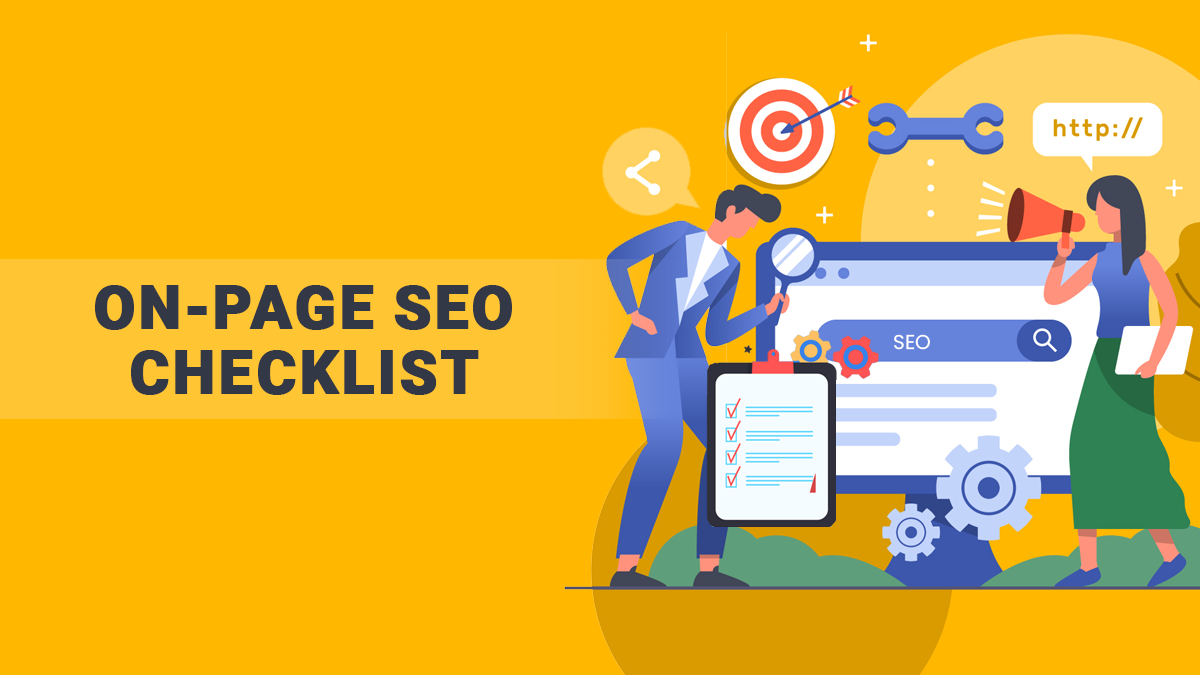Learn about the On-Page SEO Checklist to Drive Organic Traffic
On-page SEO calls for strategically placing your targeted keywords in your content, metadata, and other on-page elements. When properly optimized, your web pages become more visible to search spiders, which increases the likelihood of you ranking higher in Search Engine Result Pages (SERPs).

Source: Pixabay
Similarly, on-page SEO is responsible for improving user experience, which is a ranking factor that also boosts engagement. And when you also use those on-page elements with compelling calls-to-action, it becomes possible to funnel that traffic into conversions.
In this article, we’ll help you understand that on-page SEO is the very foundation of search visibility and plays a role in making your inbound marketing campaign a real success.
The Concept and Main Elements of On-Page SEO
On-page SEO involves paying attention to several elements that make it easier for search bots to crawl and understand the context of your web pages. If you make an on-page SEO checklist, you’ll realize that you have to cover various elements. For starters, you need to optimize the copy of your website. Many spam and core updates have completely changed the way people approach SEO in the past.
The updated E-E-A-T guidelines now also dictate what is considered helpful content. You have to ensure that the content you create is detailed, includes keywords, and is well-structured using headings.
The same holds true for meta tags and meta descriptions, which are thought to increase your CTRs by up to 30%. Ensure that the descriptions are punchy and clearly summarize the page. Similarly, internal linking is vital because it makes it easier for search spiders to crawl your site and move from one page to another.
What's more, you also need to pay attention to soloing and content clusters, which help increase the topical relevance of your content, further enhancing your chances of ranking in SERPs. Other important on-page elements include leveraging structured data, optimizing for Core Web Vitals, and refreshing existing pages.
The Idea of Using SEO Services and Tools

Source: Pixabay
One great way to improve your on-page SEO is to make use of various SEO tools and software solutions out there. Even if you don't really know about the latest SEO techniques, search engine algorithms, and on- and off-page SEO best practices, you can still rely on these on-page SEO tools, which do much more than simple website optimization.
However, finding the right tool can take some time. With a great variety of accessible services that cater to every need and budget, choosing one may be a challenging task. Thankfully, various sites are available where you can compare features and price plans of popular SEO services. Once you pick your SEO service or tool, you can monitor all your SEO efforts regularly. This will help optimize your website and content in a way that is sure to boost search rankings, resulting in more traffic and lead generation.
It's also a good idea to utilize these SEO services because you can customize everything as per your own business model. The truth is that every business comes with unique requirements and goals, and using a specific tool keeping those goals in mind helps you come up with a tailored strategy. You can see a boost in your search engine rankings because of the data you get, which is often an in-depth analysis of your website, competition, and target industry.
With the right SEO service or tool, you can ensure that no on-page element has been overlooked during the process, including:
1. Keyword research
2. Content optimization
3. Site speed optimization
4. Mobile friendliness
5. Internal linking
6. Image alt text management
By using these tools, you can design the best SEO strategies to increase visibility, which helps get the right audience to your website. Over time, this directly helps increase the volume of qualified leads. To top it all, you can develop high-quality landing pages, compelling calls-to-action, and appropriate lead magnets to improve your bottom line.
Finally, using popular SEO services is a great idea because you can generate reports measuring organic traffic, keyword rankings, engagement metrics, and leads. So, you're always in full control of how SEO works for your online business.

Keyword Research to Optimize Your Page
Whether you pick an SEO service or consider optimizing your web page all by yourself, you just can't ignore the importance of conducting thorough keyword research. Most SEO professionals begin their campaigns by finding the right keywords for your business.
You can do the same using many keyword research tools, but you also need to understand how to rate the keywords you find. For instance, it's a good idea to look for keywords with less competition.
Keywords with a difficulty score under 10 are considered to have extremely low competition. Mostly, they are long-tail keywords, and though they generate less traffic, they are more likely to get you ranked quickly. For a new website, it's vital to gain traction first while building topical authority. Once you get your site listed for various low-competition keywords, you can then aim for more difficult head terms.
After finding the right keywords, you need to focus on proper keyword optimization. Ensure you add keywords to page titles, meta descriptions, URL slugs, H1 headers, body text, and image alt text. As mentioned already, meta descriptions deserve great attention, as they can help get more clicks.
Just don't go overboard with the idea of adding keywords to your page, or it might trigger search penalties. To get organic traffic, you should stick to 3–4 keywords used per page, along with variations of the primary keyword. Ultimately, the goal is to come up with high-quality content that matches user intent and results in lead conversion.
Quality Content for SEO Benefits
Quality content holds the top position in the list of on-page SEO factors. It's paramount in directing traffic to your website, which helps generate leads. As Google focuses on providing the most relevant results to users, it's your job to make it easier for the search engine. And if you can do that, expect your site to move up the ranking ladder.
You need to create well-researched content that also satisfies the user's intent. And it should incorporate relevant keywords in a natural, original, and well-organized manner. Remember, high-quality content makes users stay on your site for an extended period of time. This engagement reduces your bounce rate, which signals to Google that you've created something useful that deserves to move up the SERPs. And being on top means getting more traffic, which increases your chances of getting more leads.
Actually, high-quality content has the power to speak directly to your potential customer's needs, which is an instant trust-builder. Also, informative content, such as eBooks, blog posts, webinars, and whitepapers, offers real value to prospects, encouraging them to share their contact details to access more content. Presenting your brand as the ultimate solution provider will help generate and convert leads.

Optimize Meta Tags for Search Visibility
Optimizing meta tags is also an important element of on-page SEO. Meta tags summarize your page's content for search engines and users, directly impacting how those pages appear in SERPs. Both meta tags and meta descriptions are important for improved search visibility.
The main goal of SEO is to simplify the complex tasks Google bots have to perform, and well-crafted meta tags definitely make a difference here. Moreover, these meta tags and descriptions serve as organic ad copy and increase the chances of users clicking on the link and visiting your page.
This directly leads to a high CTR, which also means you have more chances of converting the targeted audience into leads. In order to make meta tags work accurately for your website, you need to optimize them properly. For instance, begin by adding relevant keywords to meta tags.
Ensure your meta descriptions are compelling, within 150–160 characters, with your primary keyword introduced naturally. And finally, make sure to optimize meta tags, keeping user intent in mind, to directly increase CTRs and lead quality.
Conclusion
In the end, what is on-page SEO? Well, it's all about creating and optimizing quality content, headings, and metadata. Of course, there are various other elements to consider, and that's why it makes great sense to let SEO professionals take care of your marketing campaigns. They can come up with the right ideas and follow the latest SEO technologies to achieve sustainable lead-generation goals.




